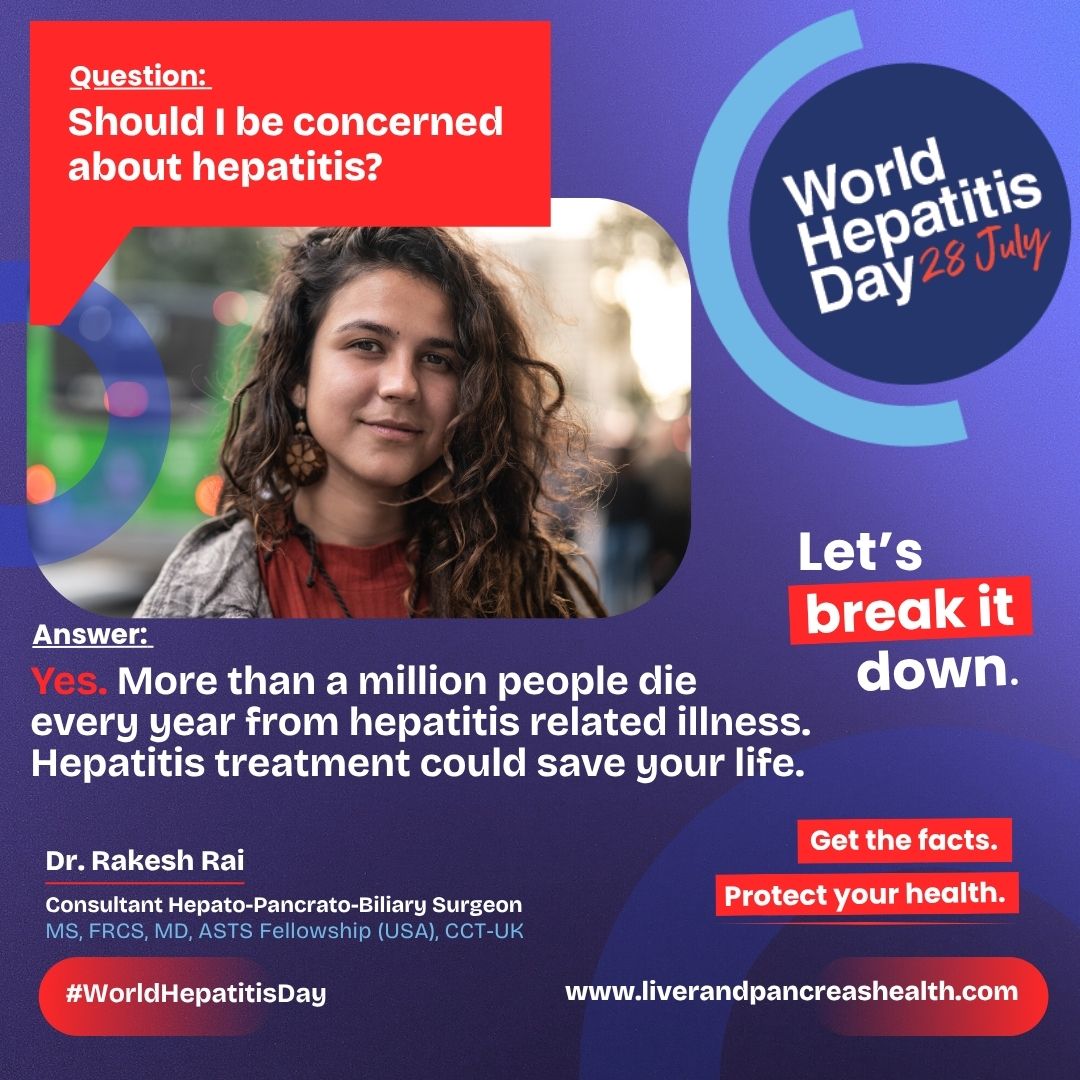Every year on July 28, the world unites to observe World Hepatitis Day, one of the eight official global public health campaigns marked by the World Health Organization (WHO). With over 300 million people living unknowingly with hepatitis and 1.3 million lives lost annually to hepatitis B and C, this day is a call to action — to raise awareness, fight misinformation, and promote prevention and treatment. The 2025 theme, “Let’s Break It Down,” emphasizes the importance of breaking barriers of silence, stigma, and ignorance to move toward a hepatitis-free future.
Despite the scale of the issue, hepatitis remains a largely misunderstood disease. Low awareness, persistent myths, and social stigma prevent people from getting tested, vaccinated, or treated.
You might have hepatitis and not even know it.
– Understanding Hepatitis:
-
- What is hepatitis?
Hepatitis refers to inflammation of the liver, most commonly caused by viral infections.
- What is hepatitis?
-
- What are the different types of hepatitis viruses?
There are five main types: A, B, C, D, and E, each with different modes of transmission and potential for causing illness.
- What are the different types of hepatitis viruses?
-
- How is hepatitis transmitted?
Hepatitis A and E are typically spread through contaminated food or water, while hepatitis B and C are often transmitted through blood or other bodily fluids.
- How is hepatitis transmitted?
-
- What are the symptoms of hepatitis?
Symptoms can range from mild and flu-like to severe, including jaundice (yellowing of the skin and eyes), fatigue, abdominal pain, and loss of appetite.
- What are the symptoms of hepatitis?
-
- What is the difference between acute and chronic hepatitis?
Acute hepatitis is a short-term illness, while chronic hepatitis is a long-term infection that can lead to serious liver damage.
- What is the difference between acute and chronic hepatitis?
– Prevention and Testing:
-
- How can hepatitis be prevented?
Vaccination is available for hepatitis A and B, and practicing safe hygiene and safe sex practices can also help prevent transmission.
- How can hepatitis be prevented?
-
- Why is testing important?
Many people with hepatitis B and C don’t show symptoms, so testing is the only way to know if you are infected and get the necessary treatment.
- Why is testing important?
-
- What is the treatment for hepatitis?
Treatment options vary depending on the type of hepatitis and the severity of the infection, ranging from antiviral medications to lifestyle changes.
- What is the treatment for hepatitis?
– Living with Hepatitis:
-
- Can people with hepatitis live normal lives?
Yes, with proper management and treatment, many people with hepatitis can live long and healthy lives.
- Can people with hepatitis live normal lives?
-
- What are the long-term effects of hepatitis?
Chronic hepatitis can lead to liver damage, cirrhosis, and liver cancer if not properly managed.
- What are the long-term effects of hepatitis?




